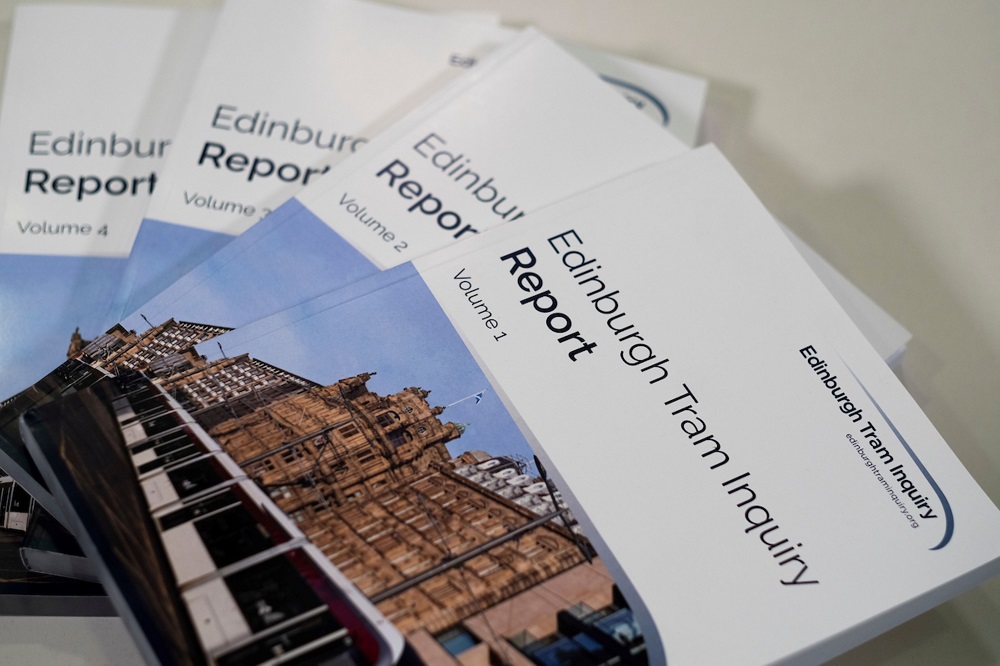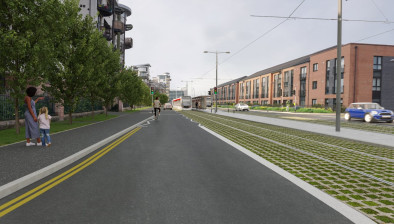Council response to Edinburgh Tram Inquiry highlights understanding of failures

The City of Edinburgh Council has published its response to the Edinburgh Tram Inquiry.
A report to the Transport and Environment Committee sets out the council’s understanding of the failures identified by Lord Hardie in delivery of the first phase of the tram project, and how lessons learned can ensure future delivery of major infrastructure projects can avoid similar issues.
This includes consideration of Lord Hardie’s recommendations relating to the council, and an assessment of the consequences of the project’s failings, such as additional costs, disruption and impact on the council’s reputation.
The report is accompanied by three other appendices covering: the financial cost and reporting of the tram project; whether any action is to be taken with employees as a result of the Inquiry’s findings and assurance of arrangements in place for Arm’s Length External Organisations (ALEO) and contractors; and an update on any possible legal action (the final to be considered in private).
These three reports will be considered by Governance Risk and Best Value Committee (GRBV) on 28 November and, along with the report to Transport and Environment Committee, will be referred to December’s Full Council for consideration.
Council leader Cammy Day said: “Since the start of the Tram Inquiry we’ve completed the line to Newhaven and launched passenger services, the success of which was down to the hard work of the in-house project team and partners. It’s also thanks to lessons learned from the first project, and our own improvements to project management and governance, communication and independent oversight.
“It’s worth noting too that in the nine years since the line between Edinburgh Airport and York Place was built, the service has flourished to become a hugely successful transport route for thousands of residents and visitors each day.
“While we broadly agree with Lord Hardie’s recommendations, prior to the inquiry’s announcement we had already introduced processes and strategies to help avoid some of the problems experienced in the original tram project. Not only have we applied this in the construction of the line to Newhaven, but these lessons are hugely beneficial to other major infrastructure projects.”
He continued: “Of course, scrutiny of the Inquiry’s findings has allowed us to provide further, robust assurance that we understand the factors that contributed to the difficulties in the first phase of tram delivery, and to build confidence in future infrastructure delivery. We want to make sure we continue learning and improving.
“We know that serious mistakes were made in the construction of the original tram line, which caused a great deal of disruption and concern for residents and businesses, as well as impacting the council’s reputation. Once again, I want to apologise for this.
“Ultimately, creating a better connected, environmentally friendly transport system is essential for a modern, successful city and we need to transform the way people move around if we are to achieve our net zero goals.”
The Edinburgh Tram Inquiry report was published in September and provides an account of the original Edinburgh Tram project’s progress, identifying factors that contributed to difficulties in its delivery. The independent inquiry was commissioned by the Scottish Government following the completion of the tram line between the airport and York Place in 2014. Its remit was to establish why the project was delivered over time and budget and did not produce a complete line.
The council’s response examines and acknowledges the findings made by the Inquiry, including those around governance, the need for independent legal advice and reporting practices. It also considers the implications for future project management.
While the report broadly agrees with Lord Hardie’s recommendation, it highlights that, since the original tram project, several processes and strategies have been put in place which have helped to avoid some of the problems experienced. The council said that it’s thanks to this approach, along with lessons learned from the original project, that it has successfully delivered the Trams to Newhaven line.






















